第52章 CHAPTER VIII(1)
On landing on the shores of England, the Queen of Scotland found messengers from Elizabeth empowered to express to her all the regret their mistress felt in being unable to admit her to her presence, or to give her the affectionate welcome she bore her in her heart. But it was essential, they added, that first of all the queen should clear herself of the death of Darnley, whose family, being subjects of the Queen of England, had a right to her protection and justice.
Mary Stuart was so blinded that she did not see the trap, and immediately offered to prove her innocence to the satisfaction of her sister Elizabeth; but scarcely had she in her hands Mary Stuart's letter, than from arbitress she became judge, and, naming commissioners to hear the parties, summoned Murray to appear and accuse his sister. Murray, who knew Elizabeth's secret intentions with regard to her rival, did not hesitate a moment. He came to England, bringing the casket containing the three letters we have quoted, some verses and some other papers which proved that the queen had not only been Bothwell's mistress during the lifetime of Darnley, but had also been aware of the assassination of her husband. On their side, Lord Herries and the Bishop of Ross, the queen's advocates, maintained that these letters had been forged, that the handwriting was counterfeited, and demanded, in verification, experts whom they could not obtain; so that this great controversy, remained pending for future ages, and to this hour nothing is yet affirmatively settled in this matter either by scholars or historians.
After a five months' inquiry, the Queen of England made known to the parties, that not having, in these proceedings, been able to discover anything to the dishonour of accuser or accused, everything would remain in statu quo till one or the other could bring forward fresh proofs.
As a result of this strange decision, Elizabeth should have sent back the regent to Scotland, and have left Mary Stuart free to go where she would. But, instead of that, she had her prisoner removed from Bolton Castle to Carlisle Castle, from whose terrace, to crown her with grief, poor Mary Stuart saw the blue mountains of her own Scotland.
However, among the judges named by Elizabeth to examine into Mary Stuart's conduct was Thomas Howard, Duke of Norfolk. Be it that he was convinced of Mary's innocence, be it that he was urged by the ambitious project which since served as a ground for his prosecution, and which was nothing else than to wed Mary Stuart, to affiance his daughter to the young king, and to become regent of Scotland, he resolved to extricate her from her prison. Several members of the high nobility of England, among whom were the Earls of Westmoreland and Northumberland, entered into the plot and under, took to support it with all their forces. But their scheme had been communicated to the regent: he denounced it to Elizabeth, who had Norfolk arrested.
Warned in time, Westmoreland and Northumberland crossed the frontiers and took refuge in the Scottish borders which were favourable to Queen Mary. The former reached Flanders, where he died in exile; the latter, given up to Murray, was sent to the castle of Lochleven, which guarded him more faithfully than it had done its royal prisoner. As to Norfolk, he was beheaded. As one sees, Mary Stuart's star had lost none of its fatal influence.
Meanwhile the regent had returned to Edinburgh, enriched with presents from Elizabeth, and having gained, in fact, his case with her, since Mary remained a prisoner. He employed himself immediately in dispersing the remainder of her adherents, and had hardly shut the gates of Lochleven Castle upon Westmoreland than, in the name of the young King James VI, he pursued those who had upheld his mother's cause, and among them more particularly the Hamiltons, who since the affair of "sweeping the streets of Edinburgh," had been the mortal enemies of the Douglases personally; six of the chief members of this family were condemned to death, and only obtained commutation of the penalty into an eternal exile on the entreaties of John Knox, at that time so powerful in Scotland that Murray dared not refuse their pardon.
One of the amnestied was a certain Hamilton of Bothwellhaugh, a man of ancient Scottish times, wild and vindictive as the nobles in the time of James I. He had withdrawn into the highlands, where he had found an asylum, when he learned that Murray, who in virtue of the confiscation pronounced against exiles had given his lands to one of his favourites, had had the cruelty to expel his sick and bedridden wife from her own house, and that without giving her time to dress, and although it was in the winter cold. The poor woman, besides, without shelter, without clothes, and without food, had gone out of her mind, had wandered about thus for some time, an object of compassion but equally of dread; for everyone had been afraid of compromising himself by assisting her. At last, she had returned to expire of misery and cold on the threshold whence she had been driven.
On learning this news, Bothwellhaugh, despite the violence of his character, displayed no anger: he merely responded, with a terrible smile, "It is well; I shall avenge her."